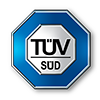Recitals 61 - 70 (MDR)
(61) The conformity assessment procedures for devices should be further strengthened and streamlined whilst the requirements for notified bodies as regards the performance of their assessments should be clearly specified to ensure a level playing field.
(62) It is appropriate that certificates of free sale contain information that makes it possible to use Eudamed in order to obtain information on the device, in particular with regard to whether it is on the market, withdrawn from the market or recalled, and on any certificate on its conformity.
(63) To ensure a high level of safety and performance, demonstration of compliance with the general safety and performance requirements laid down in this Regulation should be based on clinical data that, for class III devices and implantable devices should, as a general rule, be sourced from clinical investigations that have been carried out under the responsibility of a sponsor. It should be possible both for the manufacturer and for another natural or legal person to be the sponsor taking responsibility for the clinical investigation.
(64) The rules on clinical investigations should be in line with well-established international guidance in this field, such as the international standard ISO 14155:2011 on good clinical practice for clinical investigations of medical devices for human subjects, so as to make it easier for the results of clinical investigations conducted in the Union to be accepted as documentation outside the Union and to make it easier for the results of clinical investigations conducted outside the Union in accordance with international guidelines to be accepted within the Union. In addition, the rules should be in line with the most recent version of the World Medical Association Declaration of Helsinki on Ethical Principles for Medical Research Involving Human Subjects.
(65) It should be left to the Member State where a clinical investigation is to be conducted to determine the appropriate authority to be involved in the assessment of the application to conduct a clinical investigation and to organise the involvement of ethics committees within the timelines for the authorisation of that clinical investigation as set out in this Regulation. Such decisions are a matter of internal organisation for each Member State. In that context, Member States should ensure the involvement of laypersons, in particular patients or patients' organisations. They should also ensure that the necessary expertise is available.
(66) Where, in the course of a clinical investigation, harm caused to a subject leads to the civil or criminal liability of the investigator or the sponsor being invoked, the conditions for liability in such cases, including issues of causality and the level of damages and sanctions, should remain governed by national law.
(67) An electronic system should be set up at Union level to ensure that every clinical investigation is recorded and reported in a publicly accessible database. To protect the right to the protection of personal data, recognised by Article 8 of the Charter of Fundamental Rights of the European Union (‘the Charter’), no personal data of subjects participating in a clinical investigation should be recorded in the electronic system. To ensure synergies with the area of clinical trials on medicinal products, the electronic system on clinical investigations should be interoperable with the EU database to be set up for clinical trials on medicinal products for human use.
(68) Where a clinical investigation is to be conducted in more than one Member State, the sponsor should have the possibility of submitting a single application in order to reduce administrative burden. In order to allow for resource-sharing and to ensure consistency regarding the assessment of the health and safety-related aspects of the investigational device and of the scientific design of that clinical investigation, the procedure for the assessment of such single application should be coordinated between the Member States under the direction of a coordinating Member State. Such coordinated assessment should not include the assessment of intrinsically national, local and ethical aspects of a clinical investigation, including informed consent. For an initial period of seven years from the date of application of this Regulation, Member States should be able to participate on a voluntary basis in the coordinated assessment. After that period, all Member States should be obliged to participate in the coordinated assessment. The Commission, based on the experience gained from the voluntary coordination between Member States, should draw up a report on the application of the relevant provisions regarding the coordinated assessment procedure. In the event that the findings of the report are negative, the Commission should submit a proposal to extend the period of participation on a voluntary basis in the coordinated assessment procedure.
(69) Sponsors should report certain adverse events and device deficiencies that occur during clinical investigations to the Member States in which those clinical investigations are being conducted. Member States should have the possibility of terminating or suspending the investigations or revoking the authorisation for those investigations, if considered necessary to ensure a high level of protection of the subjects participating in a clinical investigation. Such information should be communicated to the other Member States.
(70) The sponsor of a clinical investigation should submit a summary of results of the clinical investigation that is easily understandable for the intended user together with the clinical investigation report, where applicable, within the timelines laid down in this Regulation. Where it is not possible to submit the summary of the results within the defined timelines for scientific reasons, the sponsor should justify this and specify when the results will be submitted.
